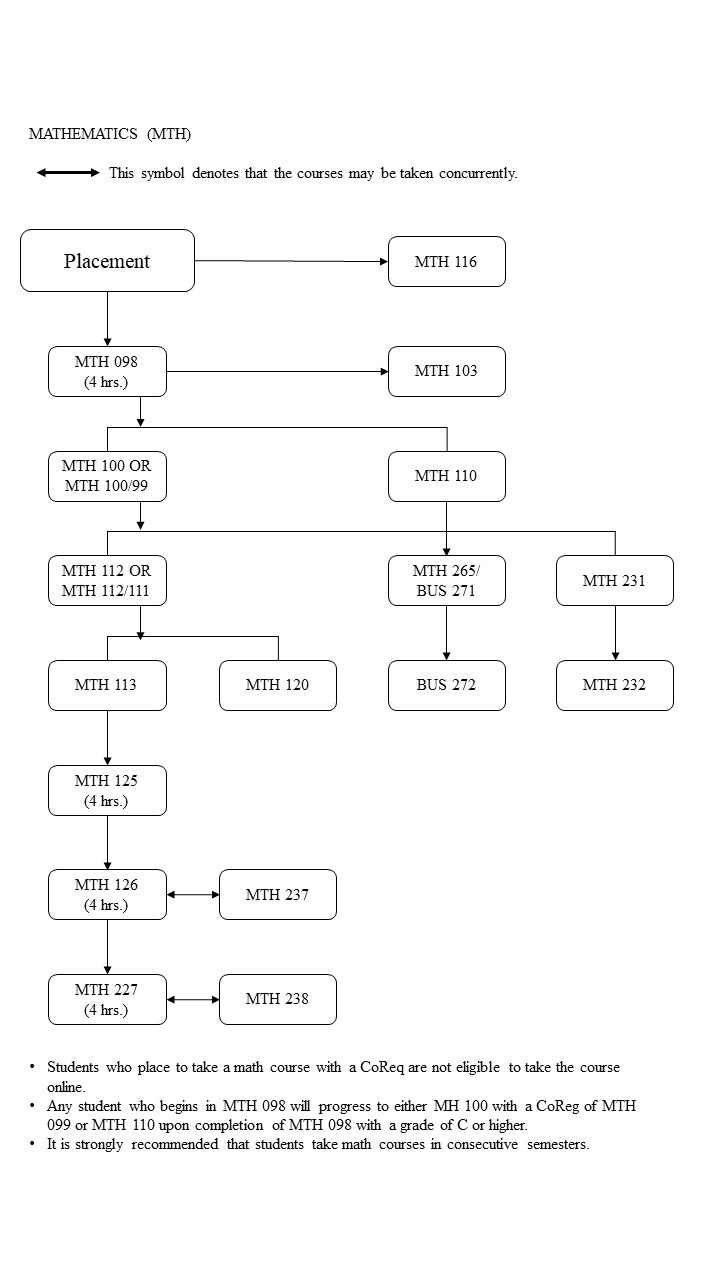MTH 098: ELEMENTARY ALGEBRA
Credits 4This course provides a study of the fundamentals of algebra. Topics include the real number system, linear equations and inequalities, graphing linear equations and inequalities in two variables and systems of equations. This course does not apply toward the general core requirement for mathematics.

